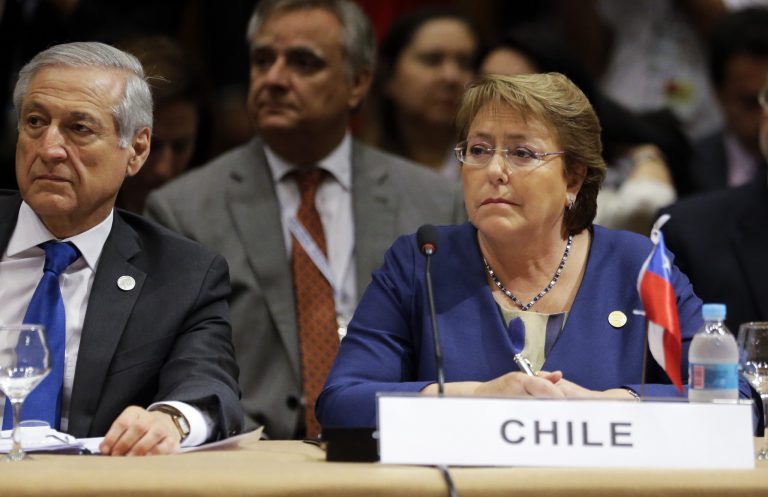
From March 2016, 200,000 Chilean students from the country’s poorest families will receive a university education free from the cost of fees.
On the 23rd December, the Chilean government passed a legislation that will grant half of the most impoverished families access to cost-free higher education. The law was passed with 92 votes in favour, two against and one abstention.
“Tuition-free university education will make Chile a more just and supportive country for all,” said Michelle Bachelet, Chile’s current President.
Chile: Free tuition for students from 50% poorest families https://t.co/teRDuzwGkb #highered #Chile #freetuition
— UniversityWorldNews (@uniworldnews) January 6, 2016
The country’s education system has experienced a legacy of privatisation since Pinochet’s dictatorship, which ended in 1990. But ever since student protests began back in 2006, the country’s prospective scholars have fought to claim back their education.
The Boston Review points out that; “per student, the country spends less than any other, and the student spends more”, and rapid levels of privatisation are so adjusted to income that Chile’s higher education system is now the fourth most expensive in the world.
The country’s outspoken student movement has campaigned to overhaul the current university system, 76 percent of which was funded by Chilean families, since it was enforced in 1981.
@GoAbroad it is also important to know about the education climate there https://t.co/AJ4omhN0q8
— IENN (@IENewsNetwork) January 3, 2016
The central issue regarding education in Chile is that students view education as a fundamental right, while the government primarily construes it as a tradable consumer good.
Upon confirming her campaign, Bachelet said: “the fight for free, high-quality education has been given a big boost today, but it is one development and not the end by any means,” adding that her coalition will continue to fight until, “eventually we [will] have a truly inclusive education system, one where an individual’s education will depend on their intelligence and work and not on the size of their family’s bank account.”
While the President spoke of a desire to end for-profit education in November, many still question her dedication to the cause. Critics also doubt the feasibility of achieving free higher education for all, as the President’s initial campaign promise was to provide free education for 70 percent of Chile’s poorest families by the end of her term in office in 2018, but the country’s ongoing economic downturn has already forced a government scale back.
The 11 Most Expensive Countries for a University Education: Hungary 92% Romania 86% Estonia 76% Chile 73% pic.twitter.com/WjYdUG6Nem
— Vladimer Botsvadze (@VladoBotsvadze) January 2, 2016
An earlier legislation was ruled unconstitutional on December 10, after Chile’s Constitutional Tribunal ruled that it discriminated between public and private institutions.
The process was then delayed to allow for a more in-depth discussion, and ministers could begin to structure a new, administrative education framework that will hold for the next few decades.
The first stage of the campaign involves 178,104 students – 27.5 percent of all university students, with a per capita family income of US$221 per month or less – who will be able to study with no fees attached. They will also benefit from no academic restrictions for the duration of their studies if they enrol at one of Chile’s 30 universities. Recipients of this free education will still be eligible for scholarships and loans.
Free education Bill passed in Chile: la educación universitaria pública será gratuita en Chile – Vía @MundoClarin https://t.co/m53gIZSMDA
— Brian Kamanzi (@BrianIKamanzi) January 1, 2016
“Private and public universities, religious or lay, should go back to being primarily universities that are only such if they are geared towards the public good,” says Carlos Peña, rector of Diego Portales, the prominent Chilean private university.
Image via AP Images.
Liked this? Then you’ll love these…
Chile to Have Free Higher Education by 2016
Tuition-Free University of the People Sees Enrolment Grow Five-Fold







